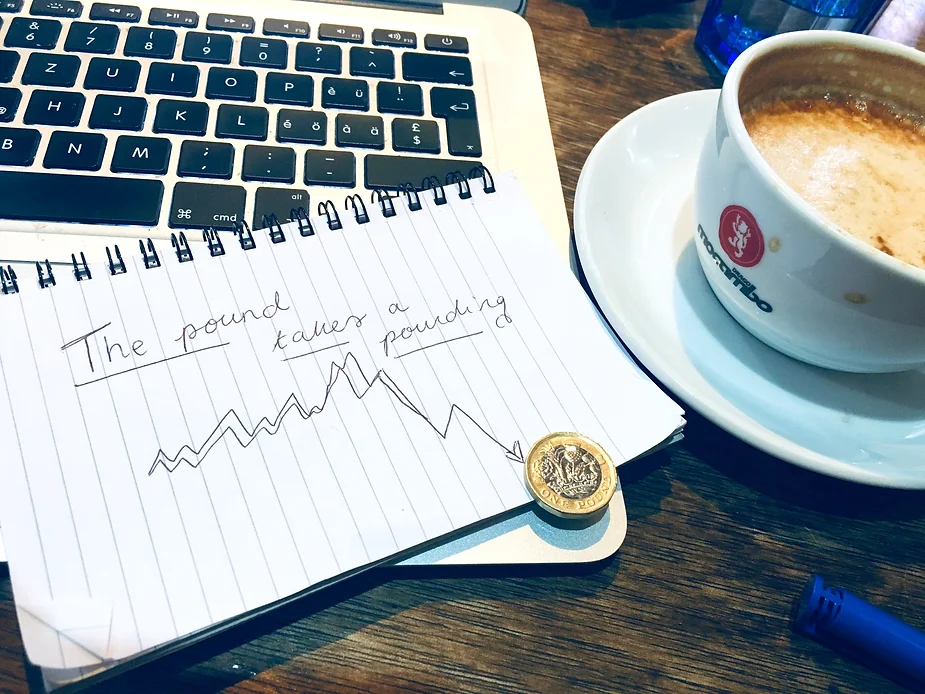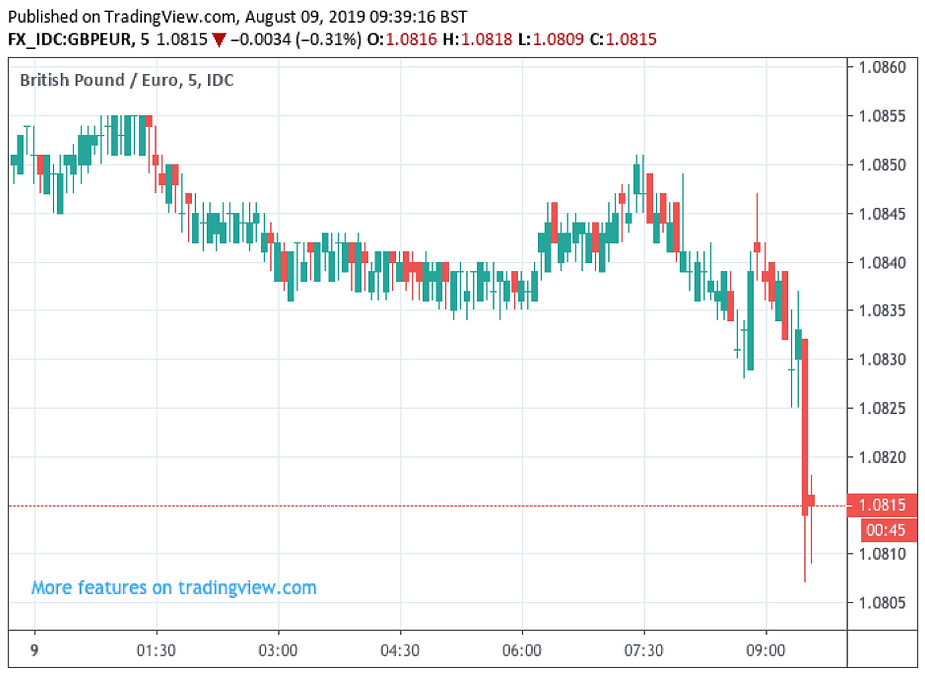Updated: Apr 7, 2020
Ok, so the Great British Pound (GBP) is falling. Falling is a sympathetic way to phrase it. Cascading, tumbling, hurling itself off a cliff and belly flopping into the abyss with a slap that’s surely going to leave a mark.

Staunch Brexiteers are nailing their colours to the mast. They are aware that the deck is getting a bit wet, and yes it’s a little splashy when they walk … but they’re confident that this particular ship will weather the storm. Remainers are looking royally unimpressed. It’s the face of someone who has been proven correct but cannot revel in smugness.
If – like me – your heart shot to your eyeballs when you checked your portfolio on Friday, you are not alone. It’s probably a sign of sanity… The pound took a beating this week. It fell 0.6% on Friday, the lowest in a decade compared to the Euro (EUR). This has led to some fund managers, (such as Rupert Harrison at BlackRock) shorting (betting against) the GBP, and some (such as Morgan Stanley) predicting that it will soon be equal to the US dollar (USD). It’s a grim prospect for British investors, especially those who may have less exposure to alternative currencies (for example, some sustainable portfolios avoid emerging markets investments).
What now?
So what should we do now? Cut our losses and liquidate? Shovel our money frantically into emerging markets? React to every Trump tweet and Boris blunder… throwing our money around like an Argentinean Tango?
… Or should we, as British investors, whip out that famous stiff upper lip and ride out the storm, the way we ride out a bad smell on the tube?
As you can see in this graph, the pound’s Friday nose-dive was not pretty, and the risk of investors being led by their emotions could be a little higher than usual. This article pulls together some advice and tips from leading managers, to hopefully bring a little more clarity and (dare I say it..?) optimism to the GBP’s seemingly bleak outlook.

What are the experts saying about the falling pound?
Here’s a snapshot what some of the experts have been saying about pound’s disastrous week, and what investors should focus on:
1. Avoid home bias, maintain or increase diversity
Tom Stevenson, from Fidelity warns that British investors should ignore their home bias, and avoid investing in sterling:
“It is tempting to invest in what you know but if the pound is sliding as it is today, you will pay a high price for the security of familiarity”
Stevenson finds that “no-one should pretend that a weaker pound is good news. But a well-spread portfolio of investments can help offset the worst impact”. Hinesh Patel from Quilter Investors also encourages investors to stay diversified.
2. Take advantage of the silver lining
- Politics is not dominating the markets Patel also points out that a falling pound may not spell disaster for the markets which have become increasingly immune to politics. Investors are weary of the latest hyped-up tweet and the markets are looking for the real substance behind the overblown sentiment.
- The FTSE 100 should not be hurt by the depreciating pound Patel even goes as far as to say that the markets could thrive, and points out that the larger names on the FTSE 100 will benefit from a weaker pound as many revenues are earned overseas. Sadie Whitelocks, writing for This is Money also picks up on this important point, highlighting how only 11% of investors are aware of this advantage. Many blue chip companies actually pay their dividends in dollars, which is preferable to the GBP right now, (even if it’s not perfect with the ever-looming prospect of a US / China trade war).
- The eyes of the world are on the UK Amongst all the fear that companies are moving abroad, foreign investors are also looking to the British property market now to snap up a bargain. We may not know what the next few months or years will bring, but new investors are paying attention and looking for opportunities. Could this be the early promise of something exciting around the corner?
GBP outlook
Although we are avoiding a recession, and the Bank of England expects the UK economy to grow 1.3% this year; business in Britain is losing its mojo, and as the 31st of October approaches, it’s fair to say that the next few months might hurt for investors, with some predicting that the pound could slide by as much as 10%.
But what is the alternative? Keeping your GBP in cash? Now is not the moment to have your savings in sterling, according to Nesrine Malik from the Guardian.
Feeling the fear and panic liquidating is surely not the answer. But moving some emergency cash savings to a diversified investment portfolio, or even using an app like Revolut to exchange it into a stable currency, (like the famously solid Swiss Franc) could be a consideration? If you already have an actively managed portfolio, now is also maybe the moment to feel slightly smug. Although there are no guarantees in finance, those extra fees you’ve been shelling out have probably been paying for themselves over the past week. Passive investors (like me!) have felt the hit and we’re still reeling.
The pound has fallen from a great height over the past two years and it’s still falling. As investors, it’s up to us to decipher if it has some bounce left. The general consensus seems to be that it will get worse before it gets better, so time horizon is a key consideration for investors.
As for me, I am going to keep my portfolio as it is, and continue drip feeding monthly deposits to make the most of pound-cost averaging and hopefully snap up some future bargains. It may hurt a little, and I may decide that it’s better not to check my portfolio at all until next year, when the temptation to cut my losses has passed. Whatever you decide to do, I wish you the best of luck and I hope this article has been helpful!



